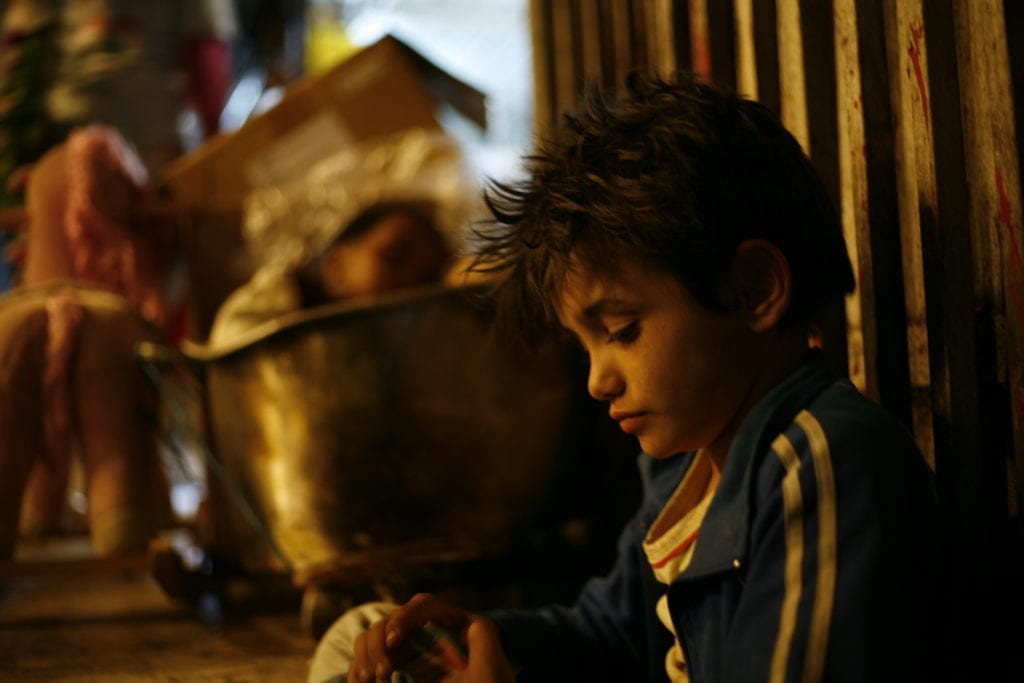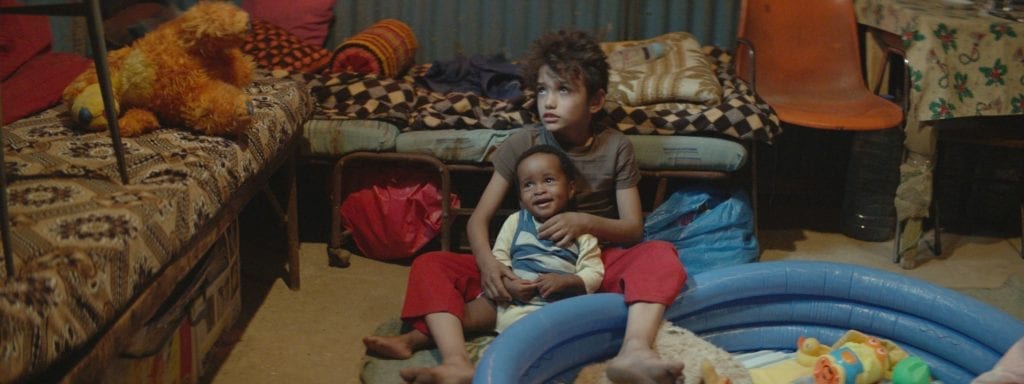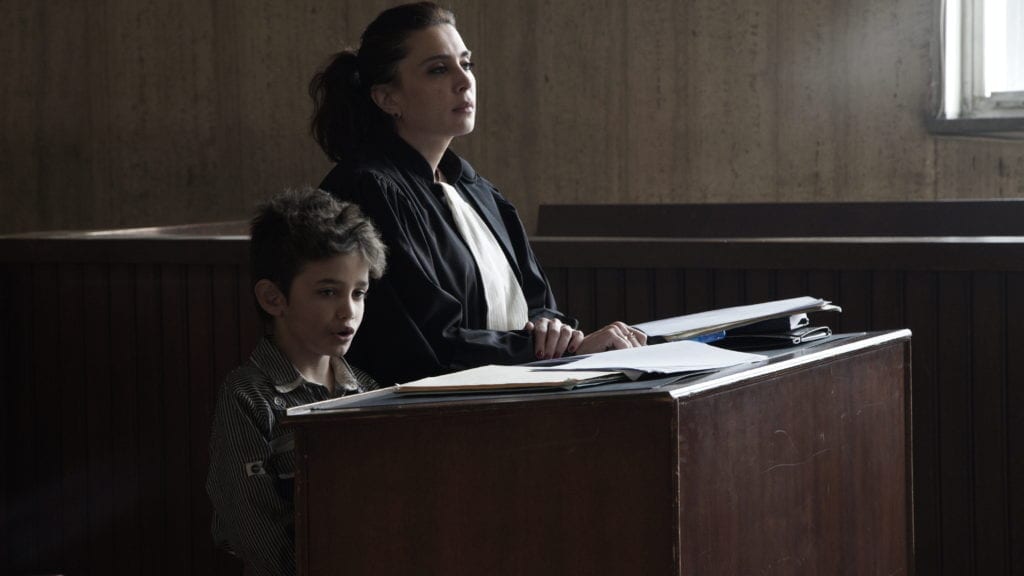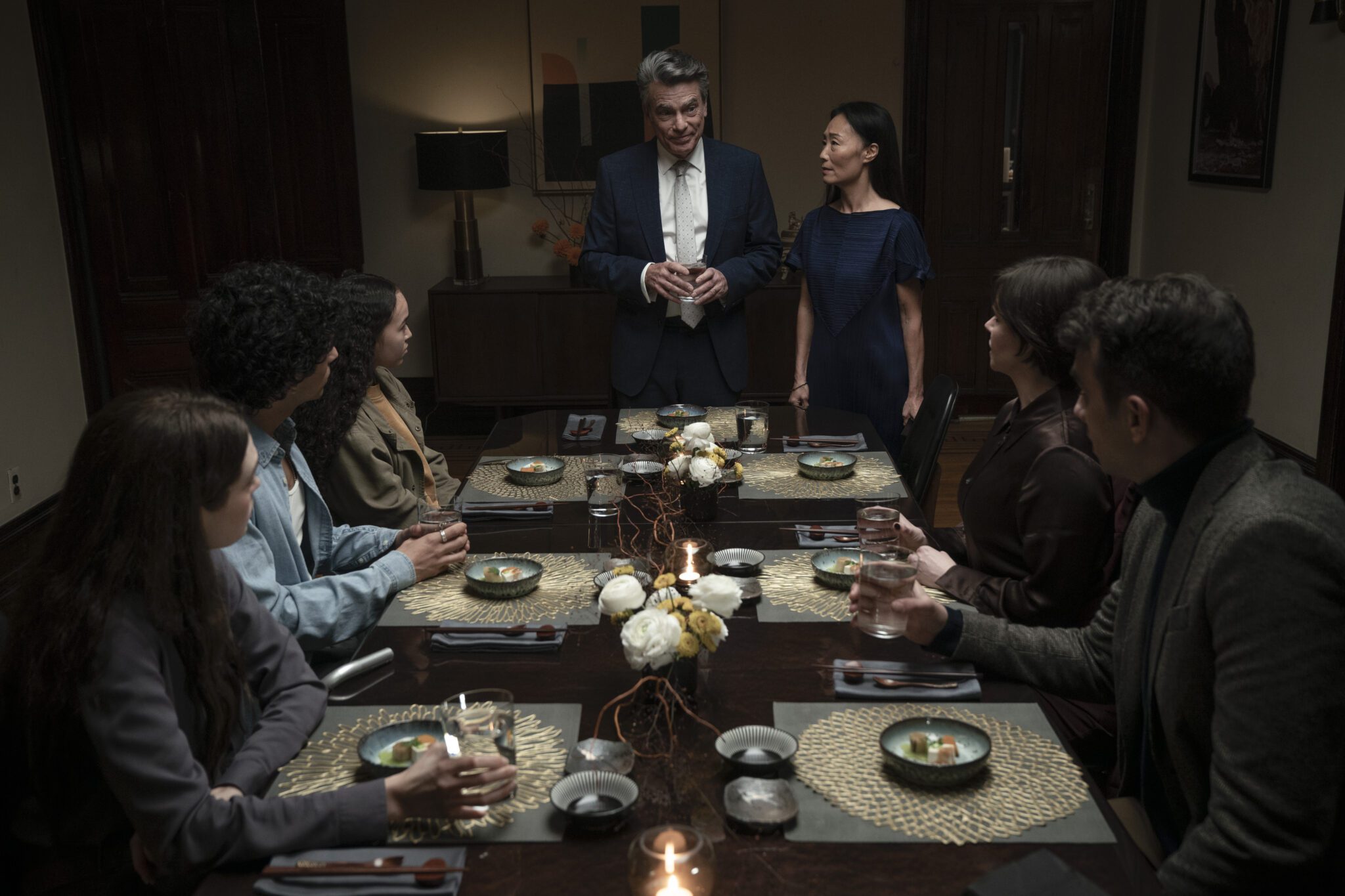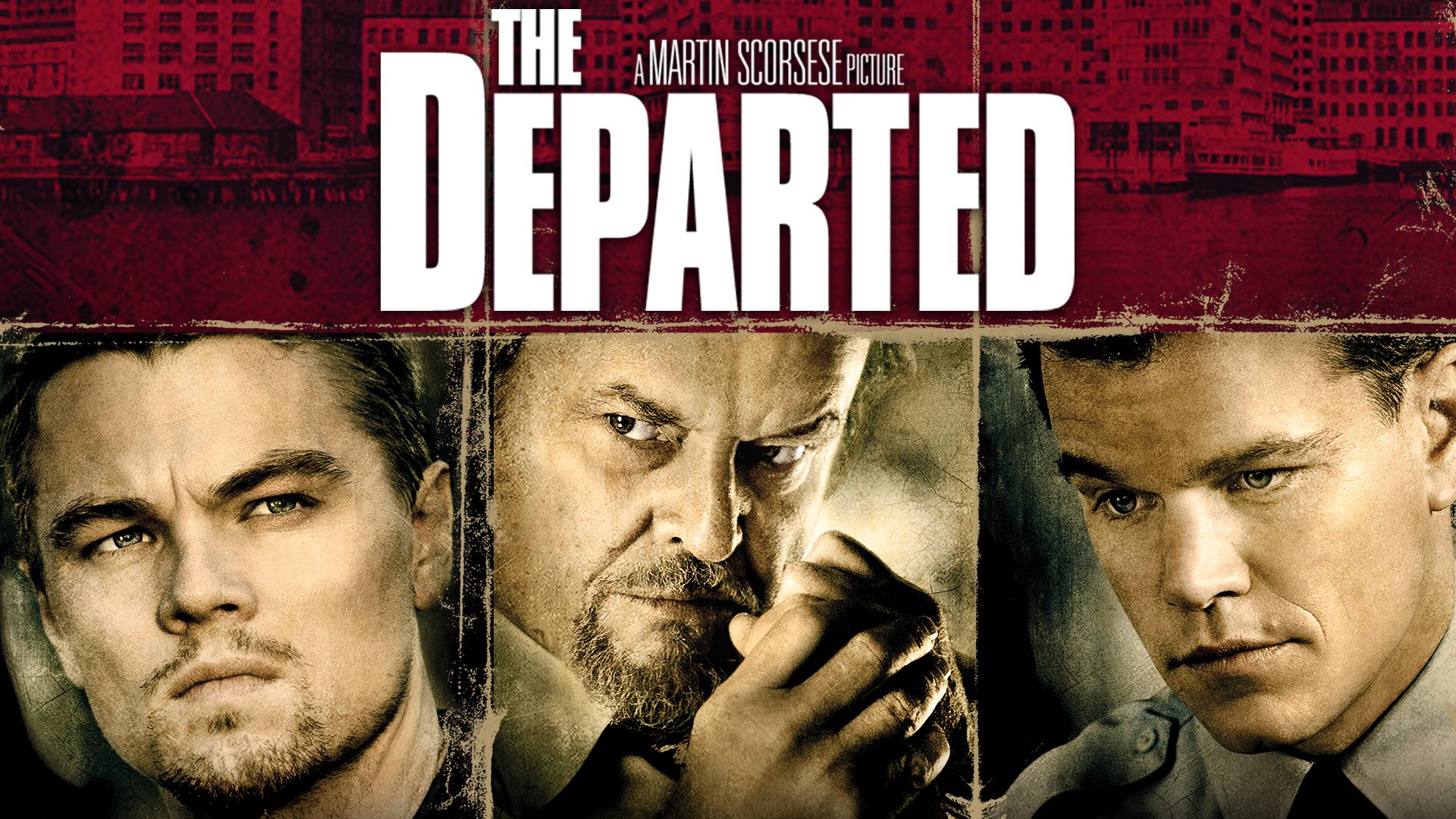How does one survive without being ?officially? a person? For people such as refugees or the poor, there may be no paper trail of their existence. In Capernaum, from Lebanese director Nadine Labaki, we see a boy struggle with life in that kind of world.
Zain (Zain Al Rafeea) is about twelve years old (based on a doctor?s physical exam), but looks younger. His family can?t provide for him or his sister. Soon they arrange for his sister?s marriage (at fourteen) and in anger Zain leaves to live in the streets. He is resourceful and determined. Soon he his taken in by Rahil (Yordanos Shiferaw), an Ethiopian refugee without proper work papers. Zain becomes a caregiver and provider for her and her baby son Yonas. Zain survives by his street smarts, but when Rahil is arrested Zain?s resources become vary scarce as he tries to care for Yonas on his own. After Zain is arrested for a serious crime, he ends up in court where he demands justice, suing his parents for bringing him into this world.
I?ve seen two of Labaki?s previous films (Caramel and Where Do We Go Now?). Both are lighthearted with a bit of bite. They deal with women finding empowerment. Capernaum is a much different kind of film. It is about those who have no power and little chance at empowerment. It makes it clear that for people such as these, no help can be forthcoming without some sort of paper that proves you exist. The film portrays these people with dignity. The film is especially focused on children in this plight. It makes it painfully clear that these are people like us, but who are trapped by systems that make them invisible and powerless. This vision of humanity led to the film winning the Prize of the Ecumenical Jury at Cannes.
Labaki used many non-professional actors in making this film in order to have their true reactions. Many of those in the film actually lead lives such as we see on screen. There are refugees and undocumented people. Often she would describe a scene for them and let them play it out in their own words and emotions. This brings a sense of realism into the story. The kinds of heartbreak that we see onscreen are daily lives for many.
In production notes for the film, Labaki says the title comes from the French word ?capharna?m? which translates as ?chaos?. She also notes that it is the name of a biblical city, which was ?a place where miracles could happen.? She goes on to say, ?That?s what?s going on in the world right now. It?s a mixture of chaos and miracles every day.? It is interesting to look at the film with those two concepts in mind. We can ask ourselves where we see the miracles in Zain and Rahil?s world? There is hope in the film, but it is certainly elusive. But the very idea of having hope in such a dark world could be a miracle itself.
Capernaum has been nominated for a Golden Globe and is Lebanon?s official entry for Best Foreign Language Oscar consideration.
Photos courtesy of Sony Pictures Classics


